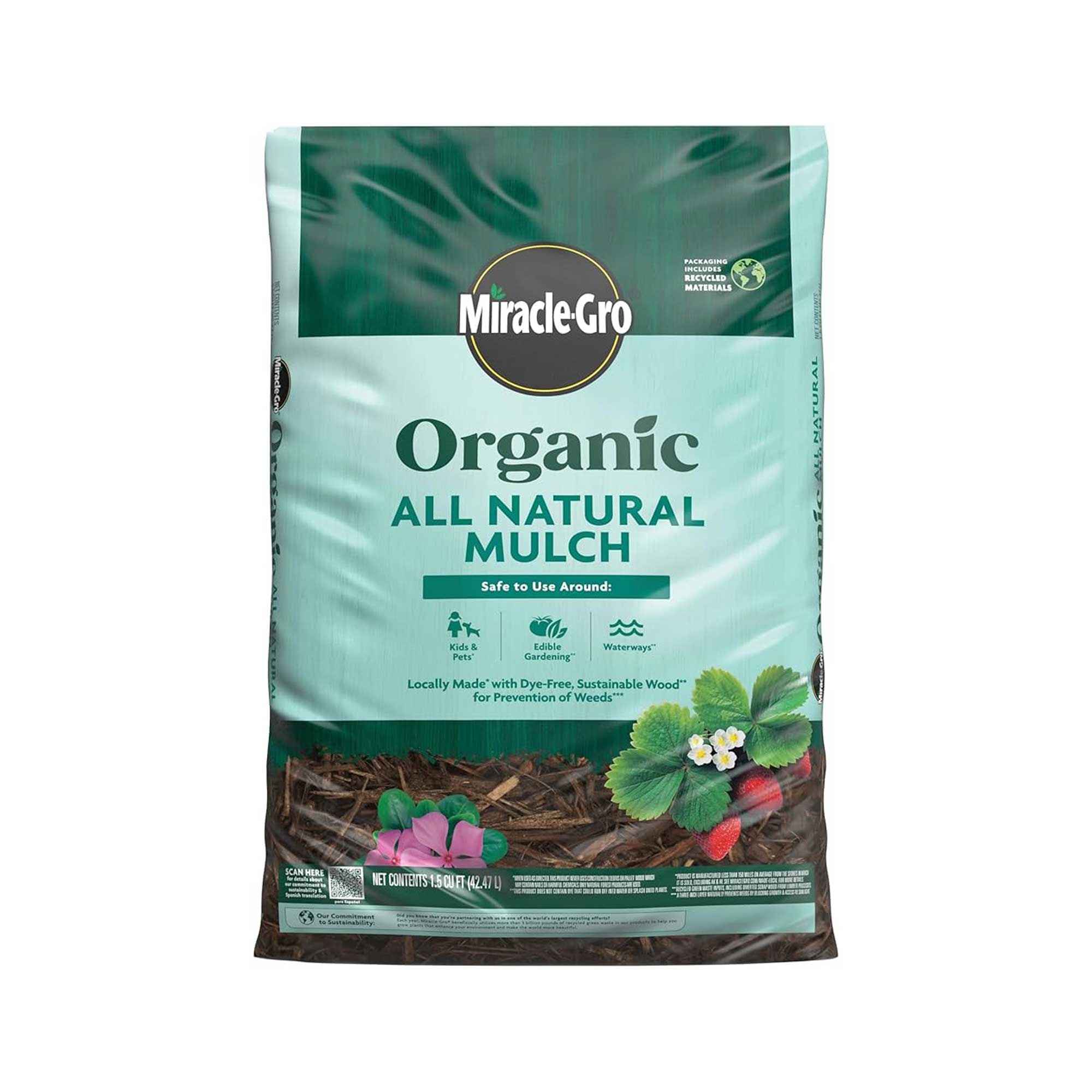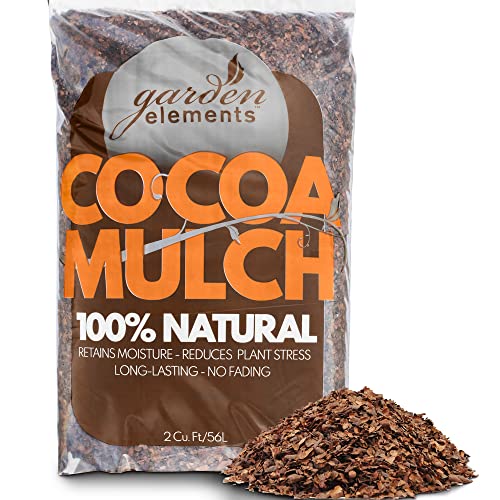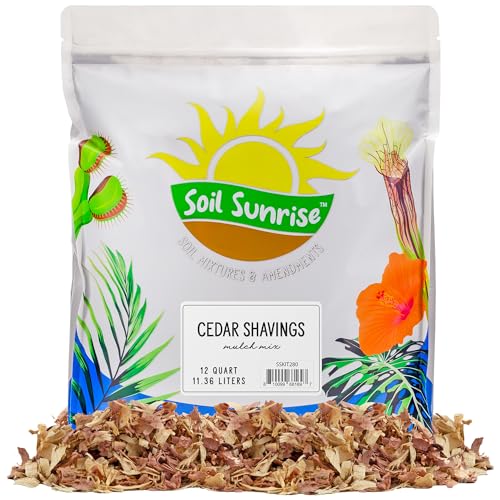Best mulch for roses – 4 natural options for flourishing plants
From bark chippings to homemade compost, these biodegradable mulches will help your roses to thrive

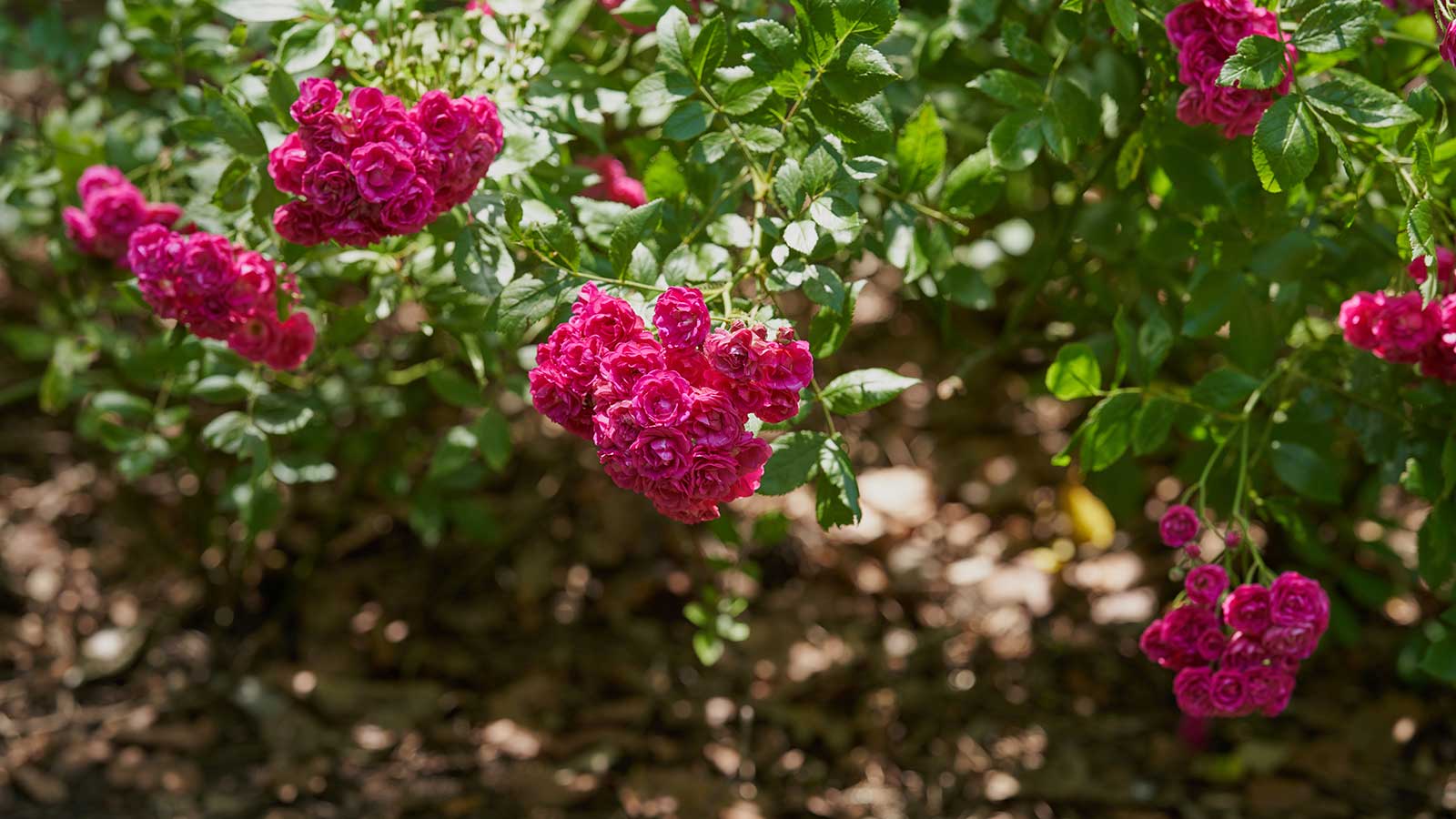
Q: I have recently planted some rose bushes in my backyard and have heard it's a good idea to mulch them. What material should I use?
A: A layer of mulch helps soil retain moisture, protects roots against winter frosts, and keeps weeds at bay. What's more, it can provide plants with added nutrients. So if you're growing roses, it's well worth adding mulching to your maintenance routine, especially at this time of year, to keep them in top condition.
There are a few different types of mulch you can use to help your roses flourish. Below, plant-care professionals share their advice.
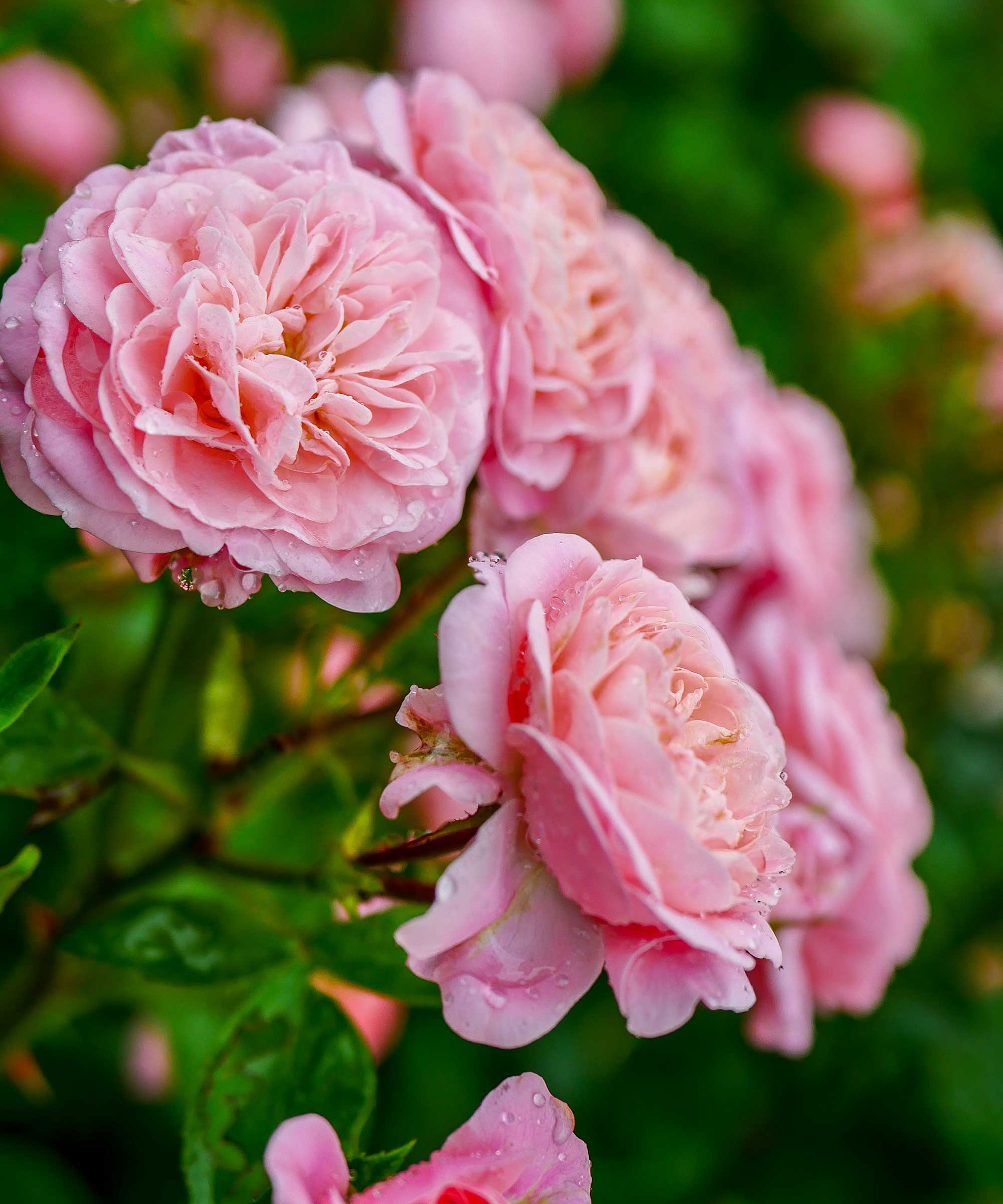
Mulching has many benefits for rose plants
4 mulches for healthy roses
Liam Beddall of David Austin Roses recommends using an organic, biodegradable mulch rather than something like an aggregate. The benefit of this is that worms and other microorganisms will bring it down into the soil, he explains. This improves the soil’s structure and encourages better drainage.
Moreover, these mulches add nutrients to the soil as they decompose over time.
'As with anything, too much of a good thing is when problems occur, so changing up your mulch each year can encourage a rich microorganism layer in the soil,' he adds.

Liam Beddall, head of department for professional trade services and senior rose consultant at David Austin Roses, leads a team providing expert guidance to garden designers, landscapers, and horticultural professionals on incorporating roses into private and public gardens. With an RHS Level 2 qualification and a passion for companion planting, he combines technical knowledge and design expertise to promote biodiversity and thriving garden schemes.
1. Garden compost
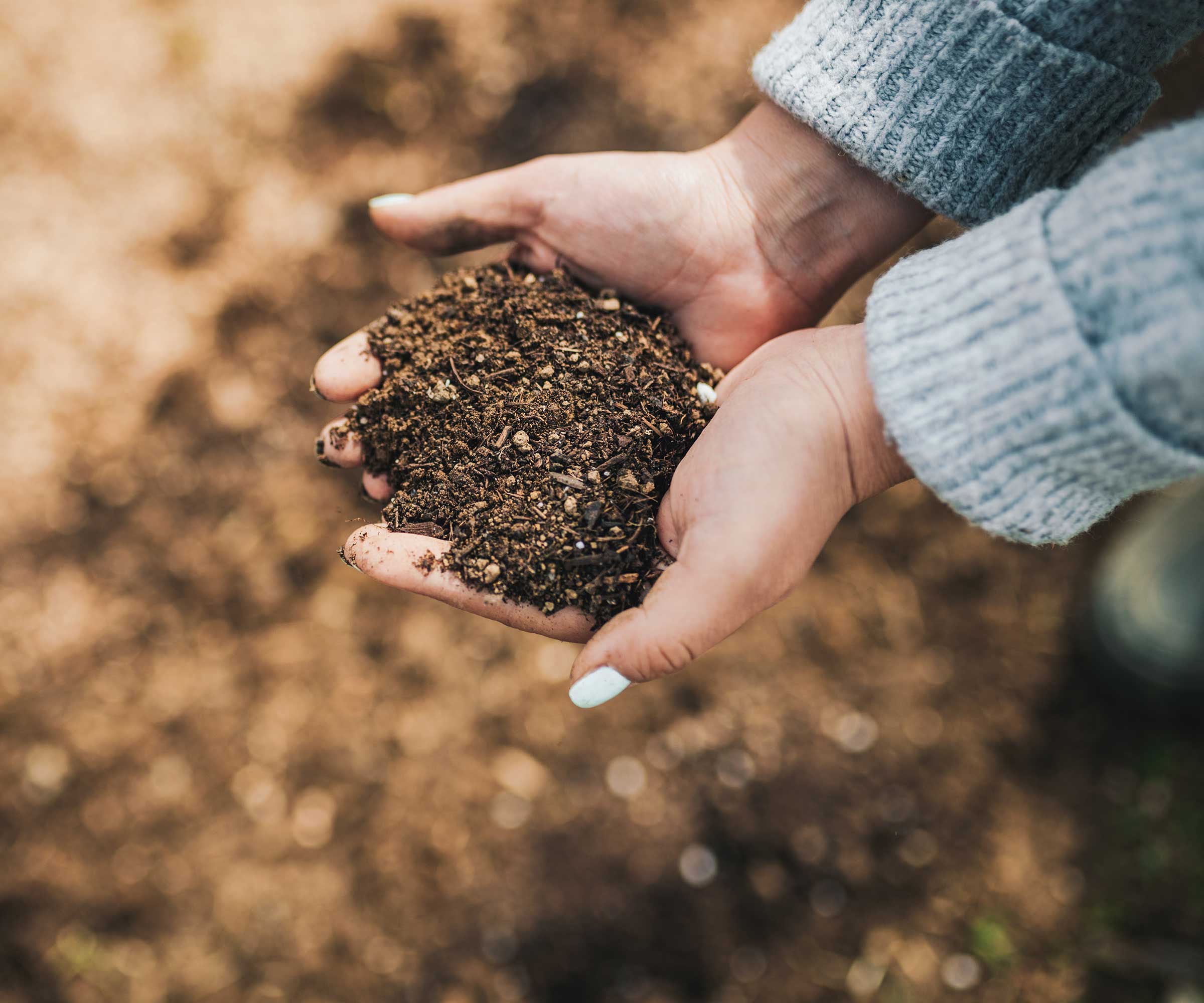
Homemade compost is rich in nutrients
Homemade compost is a great option for mulching roses – and budget-friendly, too if you make your own.
Design expertise in your inbox – from inspiring decorating ideas and beautiful celebrity homes to practical gardening advice and shopping round-ups.
If composted properly, it should give plenty of nutrients to the soil, Liam says. 'Adding lots of green and woody material to the heap and turning regularly will give you a good balance.'
Grass clippings are 'an excellent source of nitrogen', and can be added to compost heaps as part of a 'balanced diet', he adds.
2. Bark chippings

Bark adds an aesthetic appeal
Kiersten Rankel of plant-care app Greg says shredded bark is an 'excellent mulch for roses'.
'Whether cedar, pine, or hardwood, bark mulch breaks down slowly, adding organic matter to the soil while staving off weeds effectively,' she says. 'It also looks great in a garden.' What's more, cedar bark has the added benefit of being a natural pest repellent, she adds.
However, Liam points out a precaution: 'In a rose garden setting, using large-pieced bark in thick layers can stop water penetrating the soil so freely, so do be careful.'

Kiersten Rankel is a certified Louisiana Master Naturalist and regularly volunteers with local community gardens and nonprofits to help restore critical ecosystems along the Gulf Coast. She earned her master's degree from Tulane University in Ecology and Evolutionary Biology after her undergraduate degree in Environmental Biology, also from Tulane. In her spare time, she enjoys hiking and tending to her 150+ houseplants and vegetable garden.
3. Leaves
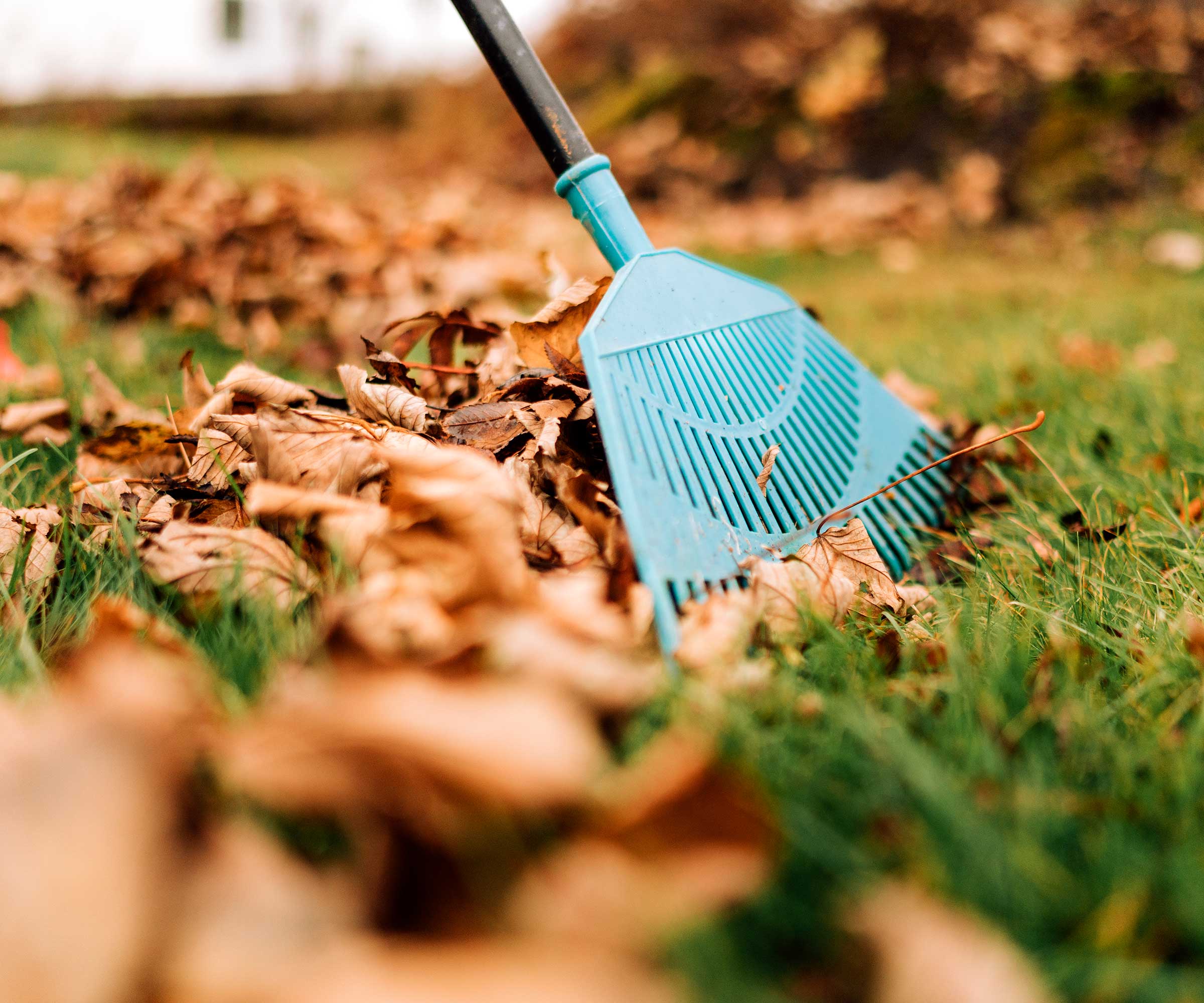
Put fallen leaves to good use
You can also use composted leaves, otherwise known as leaf mold, to mulch your roses.
'They’re rich in nutrients, improve soil structure as they break down, and create an ideal environment for beneficial organisms,' says Kiersten. 'It's also free if you collect and compost your own leaves. The only downside is that it may need replenishing more frequently than bark mulch.'
4. Manure
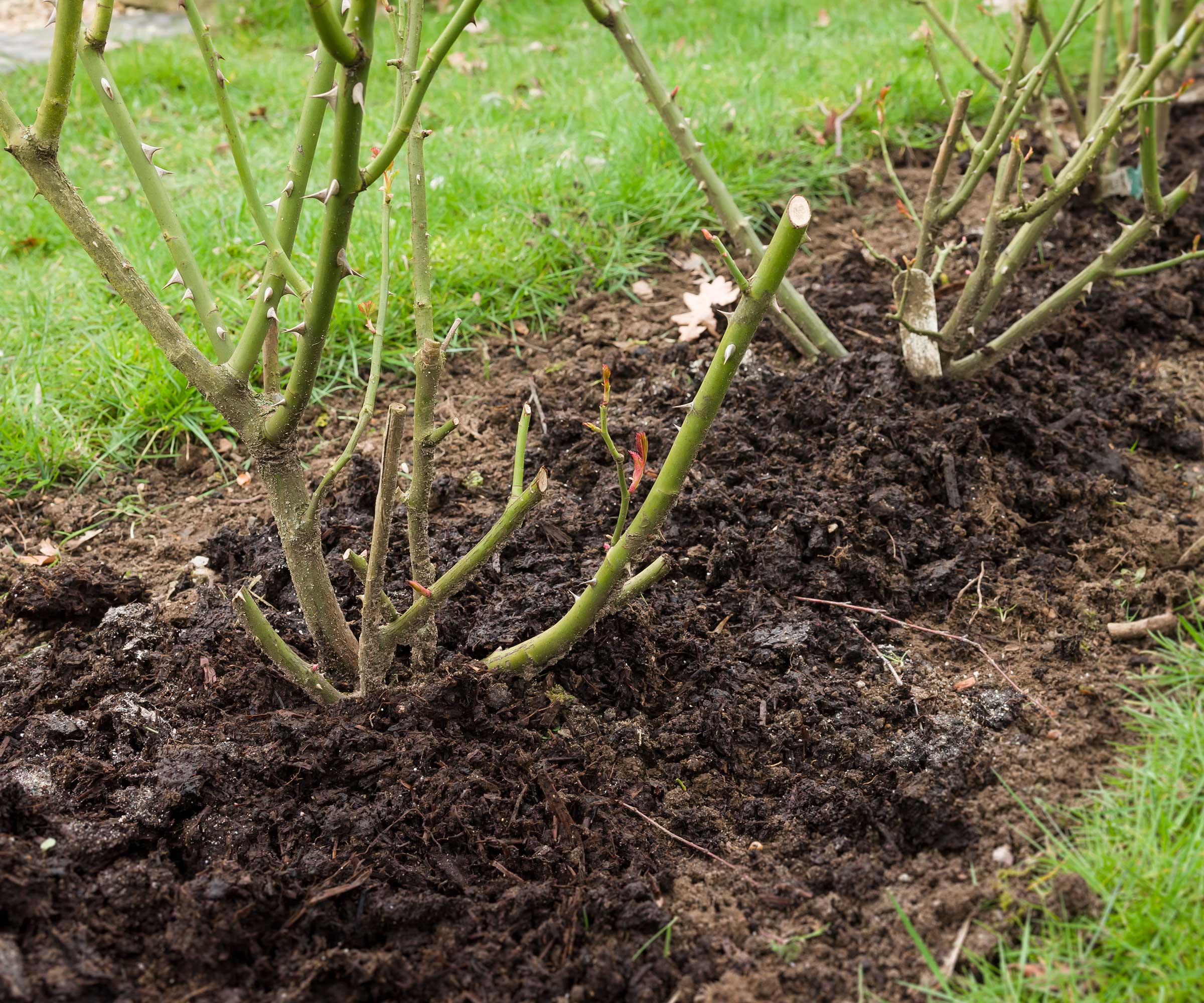
Make sure manure is well-rotted before applying it to roses
While manures have varying levels of nutrients, they make a good mulch or soil conditioner, as Liam points out. They can improve both sandy, free-draining soils as well as heavier clay soils, he adds.
'The most important thing is to ensure that it is well-rotted (generally when you can no longer smell it),' Liam continues. If it's not, it may burn and scorch plants and deplete nitrogen from the soil as it continues to break down.
FAQs
Are pine needles a good mulch for roses?
'The thing to be careful of is that they are acidic,' says Liam. 'So, while they are ideal for ericaceous plants, as they break down in the soil they can be altering the pH. While roses can tolerate some acidity, they do not like extremes.'
When should you apply mulch to roses?
'We recommend applying mulch in the spring, just after your first feed,' says Liam. 'This is the perfect time as it locks in all of the moisture accumulated over the winter and smothers over any weed seeds in the soil to inhibit germination through sunlight.'
You can also mulch again in late fall, adds Kiersten. This will help to keep the plants warm through winter.
Stephanie Waltz of Star® Roses and Plants also recommends applying mulch immediately after planting roses, no matter what time of year.

Stephanie Waltz brings her great love of plants and gardening to the rose trial coordinator position at Star® Roses and Plants headquarters in Pennsylvania. She helps to organize and implement the many moving pieces that make the various field and container trials successful. She loves talking plants and being a part of the process that brings exceptional roses to market.
How should you apply mulch to roses?
'Apply one to two inches around the rose, about as wide as the rose's branches reach,' says Stephanie. 'Be careful to leave a few inches diameter around the base, so that the mulch does not touch the rose itself. This can lead to rot and other disease issues.'
Looking for more rose-care advice? Our guides on watering roses and pruning roses have you covered.

Holly started writing about gardening five years ago, and she is a regular contributor to Homes & Gardens. She has also written many gardening features for Woman & Home and Real Homes, too. She has previous experience as a professional gardener, where she helped to plant and maintain private gardens. Holly has also looked after allotment plots over the years and loves to grow her own flowers and veggies from seed. In her spare time, she enjoys visiting local gardens, botanical drawing, and tending to her ever-growing collection of houseplants.
